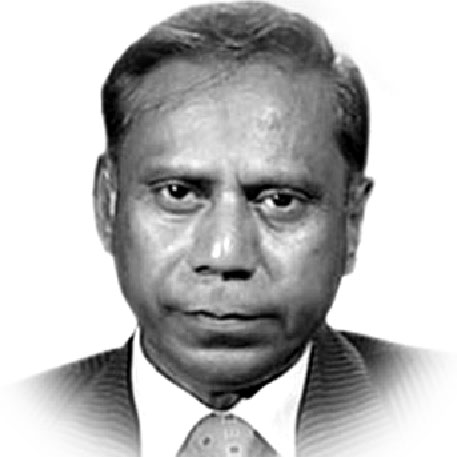Sultan M Hali
THE Organization of Islamic Cooperation (OIC) Contact Group on Jammu & Kashmir will hold an emergency meeting via videoconference to discuss the latest situation in the disputed territory. The online meet will bring together the Foreign Ministers of the Jammu & Kashmir Contact Group member states: Azerbaijan, Niger, Pakistan, Saudi Arabia and Turkey. “The meeting is part of a series of continuous Jammu & Kashmir Contact Group meetings to address the issue,” OIC Secretary General Dr Yousef Al-Othaimeen was quoted as saying. The OIC, founded in 1967 and consists of 67 countries, is the collective voice of the Muslim world to ensure and safeguard their economic and political interests. Kashmir is held by India and Pakistan in parts but claimed by both in full. A small sliver of the region is also controlled by China. Since they were partitioned in 1947, India and Pakistan have fought three wars—in 1948, 1965 and 1971, two of them have been over Kashmir.
Kashmiri groups in occupied Jammu & Kashmir have been fighting against the Indian rule for independence or unification with neighbouring Pakistan. According to several human rights organizations, thousands of people have been killed in the conflict since 1989. Hundreds of thousands Kashmiri women have been raped, while thousands of Kashmiri youth languish in jails. On 5 August 2019 the Indian government revoked Article 370 and other related provisions from its Constitution, scrapping the country’s only Muslim-majority state with its autonomy. It was also split into two federally administered territories. Simultaneously, it locked the region down, detaining thousands of people, imposing movement restrictions and enforcing a communications blackout. Pakistan has urged the OIC to “facilitate a lasting solution” to its long-smouldering dispute with long-time rival India on Jammu and Kashmir. “In view of the grave situation, it is imperative that the OIC steps up its efforts to facilitate a lasting solution to the Jammu and Kashmir dispute,” Foreign Minister Shah Mahmood Qureshi said in an address to an emergency meeting of the OIC’s Contact Group on Jammu and Kashmir via video conference.
“The OIC must urge India to rescind its unilateral and illegal actions since 5 August 2019; implement the relevant UNSC resolutions to hold a UN-supervised plebiscite in IOJ&K; halt its blatant human rights violations and provide unhindered access to OIC, UN, human rights organizations and international media to investigate and report on the situation in the occupied territory,” Qureshi said. He was referring to India’s scrapping of the decades-long special status of the disputed valley last August. Drawing a parallel to the Palestinian issue, Qureshi said: “The Jammu and Kashmir dispute, just like Palestine, continues to be the longest-standing item on the UN and OIC agenda.” He went on to say that Israel and India were pursuing similar tactics to disenfranchise and dispossess these peoples. “Both these situations are worsening and call for the urgent attention of the international community,” he maintained.
Accusing New Delhi of toeing a “Hindutva” agenda, he said the “occupying” forces were deliberately targeting Kashmiris. “For the last 10 months, the Kashmiri people have endured untold suffering from continuous lockdown, military siege, communications blockade and unprecedented restrictions,” he further said, adding: “It is highly reprehensible that while the world community is grappling with the COVID-19 pandemic, India remains busy intensifying its brutalization of the Kashmiri people.” As part of this cover-up, Qureshi said, India had further intensified its violations of the cease-fire along the borders, killing 13 people, and injuring another 104, including women and children. “There is a possibility that in order to divert the world’s attention from its state-terrorism and unacceptable actions in IOJ&K, India may resort to false flag operation and undertake some other misadventure which could imperil regional peace and security,” he added.
Qureshi said his country had exercised maximum restraint despite Indian military and political leaders’ “belligerent rhetoric” and “aggressive actions” on the ground. However, he warned that Islamabad would defend itself against any act of aggression. The latest surge in violence has left dead over 100 suspected Kashmiri fighters in the disputed Himalayan valley this year. Some 72 freedom fighters were killed since the coronavirus pandemic emerged in the region on 20 March. Also, in Siachen glacier in northern Kashmir, Indian and Pakistani troops have fought intermittently since 1984. A cease-fire took effect in 2003. Pakistani Prime Minister Imran Khan raised his voice in support of the beleaguered Kashmiris at the United Nations General Assembly session last year. His concerns were echoed by the bold Turkish President Recep Tayyip Erdogan as well as the Malaysian Prime Minister Mahathir Muhammad.
Most members of the Arab world enjoy outstanding trade and commerce ties with India and that has deterred them from coming out in full support for the Kashmiris. Arab media has picked up the cudgel on behalf of Indian Muslims to expose Indian government’s anti-Muslim stance. Numerous article have appeared in Arab dailies while the social media is abuzz with tweets warning Indian government to desist from Islamophobia. Interestingly, members of the Royal Family in Oman and UAE have taken to sending messages via the social media that if India does not refrain from sending hate messages, especially through its Diaspora working in the Middle East, they will face the danger of being deported. It is high time that the OIC takes cognizance of the sad plight of the Kashmiris and chastises India strongly.
—The writer is retired PAF Group Captain and a TV talk show host.










